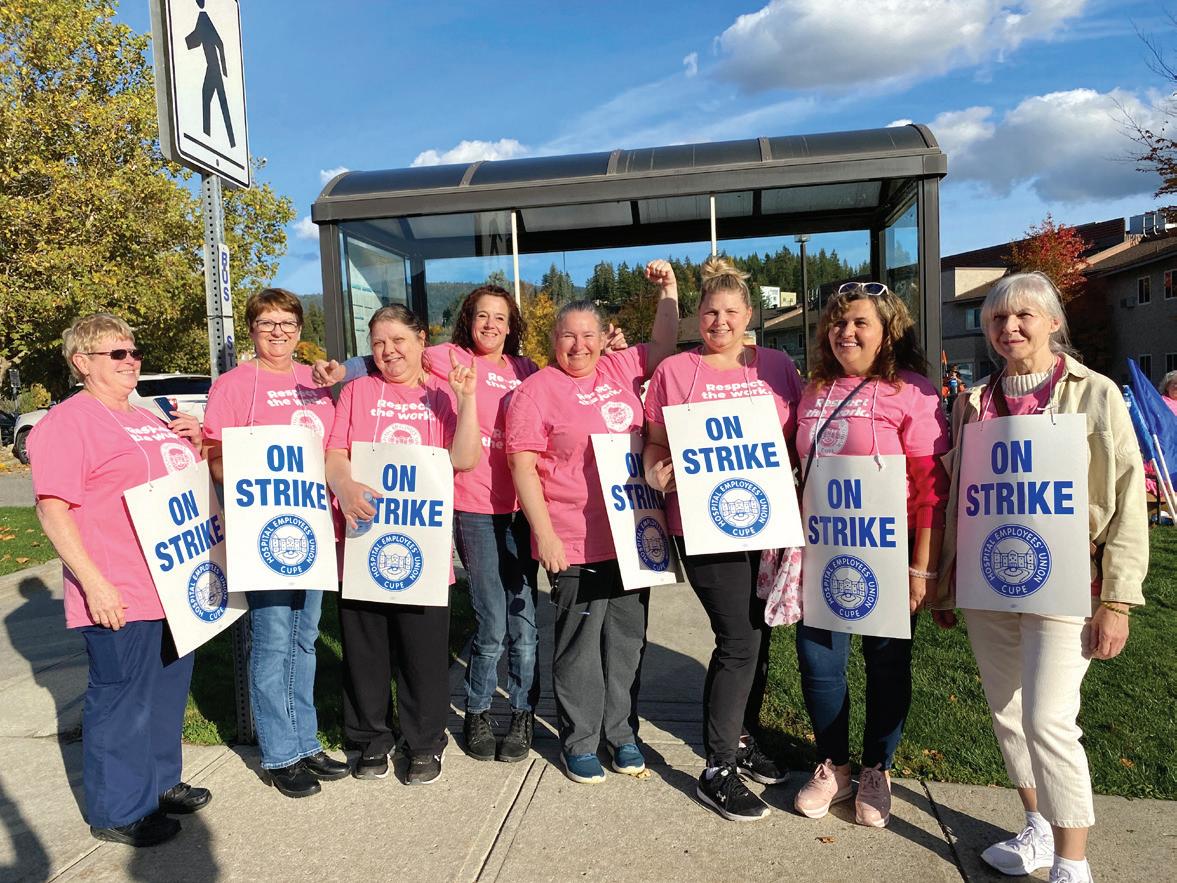
2 minute read
YOUR UNION
Mielke adds that some workers who self-disclose, even when there was no workplace impact, have been forced to follow this procedure to be allowed back to work.
And members using substances to manage mental health challenges often find themselves forced into a drug or alcohol program instead of being offered more appropriate supports.
“These are mostly not people who showed up for work impaired,” Mielke says. “Many of them work in positions where they don’t interact with patients or provide care. But they’re being treated like they pose a serious threat to health and safety in the workplace.”
The arbitrator’s 2018 decision improved IHA’s policy in several ways, although the revisions did
Out to get a fair deal
HEU members at two long-term care sites run by Good Samaritan Canada walked off the job October 20 for a one-day picket.
They’re pressuring the employer to return to the bargaining table after more than three years without a contract.
Delta View in Delta and Pioneer Lodge in Salmon Arm are among seven Good Sam sites around the province, where members voted 98 per cent “yes” to strike in July.
“After two years of bargaining, during which Good Samaritan delayed and cancelled dates, the not address all requirements.
The revised 2020 version of the policy and guidelines requires the employer to consult with the worker and the union in choosing an addictions specialist. It also improves confidentiality by restricting access to medical information to the employer’s Disability Management department.
Despite these improvements, there’s still disagreement on “safety sensitive” positions in health care settings – direct or indirect care –which would trigger the policy.
That’s why HEU filed a grievance in 2018 on behalf of a hospital housekeeper, who was subjected to an invasive independent medical assessment, mandatory treatment, and medical monitoring at her own expense, based in part on a pre- sumption that her job was “safety sensitive”.
In a 2023 decision, an arbitrator ruled the employer failed to prove housekeeping is “safety sensitive”. The member’s treatment was deemed “highly intrusive and unnecessary,” as well as discriminatory, and she was awarded lost wages and damages.
But this still didn’t establish a clear definition of a “safety sensitive” job, and left other issues unresolved –including whether the employer should pay for mandatory medical monitoring.
Because the law and the application of IHA’s policy are still unsettled, HEU urges members to contact their union servicing representative before talking to their employer about substance use.
ELAINE LITTMANN
employer is still offering no reasonable improvements to benefits, sick leave or shift differentials – despite the fact this employer has received substantial wagelevelling subsidies from the B.C. government since March 2020,” says HEU secretary-business manager Meena Brisard.
The employer has also demanded an end to contracting-out protections.
As the Guardian goes to press, mediation dates have been scheduled for early November.
Union group to tackle housing crisis
HEU’s Provincial Executive is initiating a new Housing Working Group to provide members an opportunity to address homelessness, affordable housing, and discrimination in accessing housing, and make recommendations to the union.
The group will identify resources and recommend lobbying and campaign objectives aimed at the federal, provincial and local governments.
The group will coordinate with organizations to advocate for









